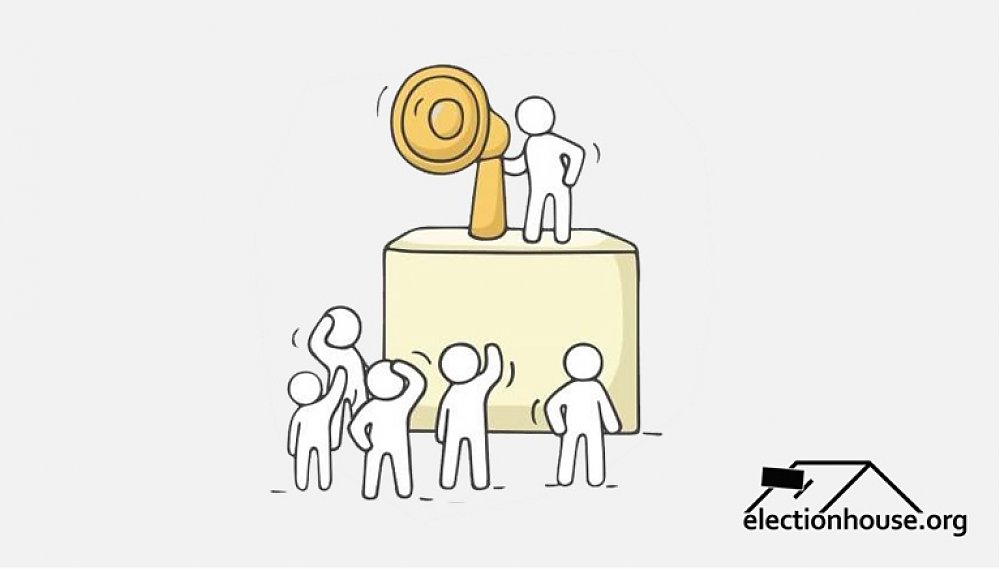Digital technologies have brought new and complex challenges to democracy and human rights. Working and collaborating across various sectors, including the electoral sector, is crucial.
Online hate speech and disinformation are circulating at an alarming speed. Activists, journalists, and human rights defenders are under surveillance and frequently targeted by online attacks. This indicates that digital rights are at risk: fundamental human rights such as freedom of expression, association, and assembly are in danger within the digital sphere.
The landscape of digital rights, intersecting with other issues, was the main theme of the Digital Rights Asia-Pacific 2023 Assembly (DRAPAC23). Phet Sayo, the Executive Director of EngageMedia, highlighted some of the current challenges in the digital world, including network and telco shutdowns, the rise of control cyber laws, information disorder, mass censorship and surveillance, shrinking civic spaces, adoption of AI, data justice, and data protection.
"The first thing to do is to make sense of things. We invite you to make sense of regionality. We invite you to make sense of demanding roles of civil society. We hope to move collectively towards sense-making and collaboration," said Phet during his opening speech (22/5).
DRAPAC23 took place at the Chiang Mai University campus in Chiang Mai, Thailand, from May 22nd to May 26th, 2023. During the five-day event organized by EngageMedia, there were more than 125 sessions aimed at bringing together various issues and networks of organizations working on digital rights. This goal was reflected in the theme of DRAPAC 23: building knowledge, building collaborations, building momentum.
The diverse sessions at DRAPAC23 reflected the reality of the challenges and efforts to ensure digital rights in the Asia-Pacific, which are also diverse. These sessions discussed topics such as artificial intelligence, disinformation, online gender-based violence, hate speech, tech company accountability, online privacy, data justice, censorship, digital security, and more. These themes were presented in a combination of session formats including panel discussions, roundtable discussions, focus group discussions, workshops, exhibitions, and film screenings.
Among the various discussions on digital rights, there were several sessions that addressed the intersectionality of digital rights and elections. Demands for transparency and accountability of digital platforms were a common thread in these sessions.
In the session "Growing the Movement for Platform Accountability in Asia," Luminate facilitated a discussion featuring the story of Daniel Motaung, a former Facebook content moderator who became a whistleblower on the transparency of content moderation processes within the company.
Transparency in content moderation, particularly during elections, was also discussed in the session "Fighting (Election) Disinformation after Tech Winter." The effectiveness of content moderation processes during elections will face challenges after technology companies experienced a "tech winter"—a decrease in investment interest in the technology sector leading to significant job layoffs. Meta was one of the companies affected, laying off approximately 11,000 employees, including the Politics and Government Outreach division that engaged in dialogue with governments, civil society organizations, and other stakeholders especially during elections.
"To face upcoming elections, Meta will establish a small global team and a new division called Government and Social Impact based in Singapore," said Noudhy Valdryno, Meta Head of Public Policy for Indonesia and Brunei (23/5).
Another topic regarding the intersection of digital rights and elections was discussed in the session "Countering Hate Speech in Elections: Lessons Learnt and Ways to Counter Hate Speech." Nalini Elumalai, Malaysia Program Officer at ARTICLE 19, led a discussion on the findings of hate speech during elections in Malaysia and the Philippines, with speakers Wathshala Naidu from the Centre for Independent Journalism (CIJ) and Lisa Garcia from the Foundation for Media Alternatives.
In Malaysia, minority groups such as ethnic and religious minorities, migrant workers, and the LGBTIQ+ community often become targets of hate speech. The term "hate speech" is frequently used by the majority to silence expressions protected by international law. Individuals or groups who speak out against the government, public officials, or religion are often targeted under the pretext of having engaged in hate speech.
ARTICLE 19 recommends the use of the six-part threshold test outlined in the Rabat Plan of Action to determine whether speech should be restricted, permissible, or protected. These six six-part threshold are context of the statement; speaker’s position or status; intent to incite audience against target group; content and form of the statement; extent of its dissemination; and likelihood of harm, including imminence.
During the 2022 election in the Philippines, female candidates encountered gender-based online attacks. These offensive remarks, infused with misogyny, were intended to belittle their intelligence and capability. Sexist assaults on women in leadership roles raise questions about their rights and capacity to guide political and governance affairs, ultimately posing significant threats to democracy.
"The authority wielded by, and the amplifying impact of, mass and social media have been significant factors in recent years. In the recent election in Malaysia, we witnessed the role of TikTok in influencing and fuelling hatred. What is concerning is that TikTok primarily has younger users compared to Facebook and Twitter," explained Nalini Elumalai regarding the background of the session.
DRAPAC23 brought together these intersecting issues. Reflecting on the lessons learned, challenges, and plans during the sessions throughout the week highlighted the need for change and adaptation to current challenges. DRAPAC23 also brought together a broader range of allies for digital rights advocacy: digital and human rights advocates, academics, journalists, media activists, artists, filmmakers, technical communities, local communities, and representation of marginalized vulnerable groups. Momentum has been gained. The next step is to ensure that discussions on digital rights and collaboration ideas are concretized and put into action.
MAHARDDHIKA
DRAPAC23 Fellow











